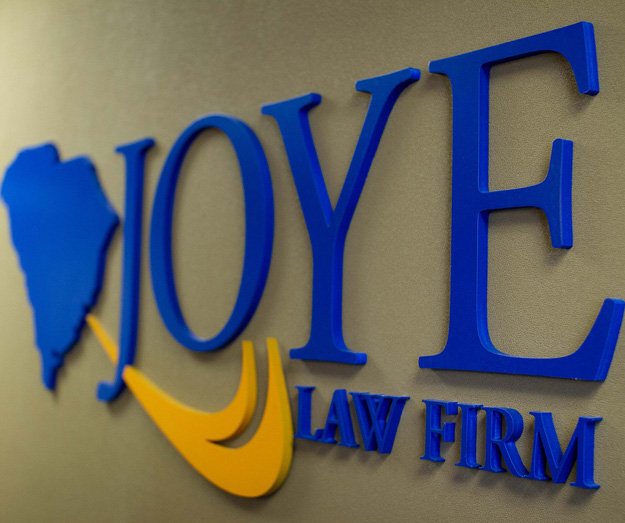
If you have been injured in a work-related accident in South Carolina, it is essential to understand your rights and options. Workers’ compensation is a system designed to provide financial support and medical benefits to employees injured on the job. As experienced South Carolina workers’ compensation lawyers, our law firm has been diligently representing clients for over five decades. With over 250 years of combined legal experience, our attorneys are well-equipped to guide you through the complexities of the workers’ compensation process.
What is Workers’ Compensation in South Carolina?
Workers’ compensation in South Carolina is a no-fault insurance program that ensures injured employees receive appropriate benefits, regardless of who caused the accident. This means that, in most cases, you are still eligible for compensation even if the accident was partly or entirely your fault.
South Carolina law mandates that most employers carry workers’ compensation insurance to provide financial support to workers and their families when accidents occur on the job. The primary objective of workers’ compensation is to expedite the provision of benefits and reduce the need for lengthy court battles.
Does It Matter Who Was at Fault for the Accident?
In a South Carolina workers’ compensation case, fault is generally irrelevant. Whether the accident was due to the employee’s mistake, the employer’s negligence, or even a combination of both, the injured worker can still receive benefits. This no-fault approach ensures injured employees can focus on their recovery rather than engaging in protracted legal battles to determine fault.
What is the “Grand Compromise” in South Carolina Workers’ Compensation?
The workers’ compensation system is often referred to as the “grand compromise.” This is because the system establishes a balance of benefits and sacrifices for both employees and employers. Let’s examine what each party gains and gives up:
What the Employee Gets
- When an employee is injured on the job, workers’ compensation provides them with defined benefits, regardless of fault. These benefits include temporary payments and medical bills if an employee is unable to return to work for more than seven days after an injury or occupational disease.
What the Employee Gives Up
- In exchange for workers’ compensation benefits, the employee relinquishes the right to sue their employer in the court system. Employees are also unable to seek compensation for pain and suffering or other potentially unlimited damages, such as full wage loss or loss of consortium. However, if an additional third party is found at fault, injured workers may have the ability to file suit against that third party.
What the Employer Gets
- Employers benefit from protection against lawsuits stemming from work-related injuries. They also have limited liability, ensuring a more predictable financial outcome to any claim filed against them resulting from a work-related injury or illness. The streamlined dispute resolution system facilitates faster resolution of claims, reducing the strain on both parties.
What the Employer Gives Up
- In order to enjoy protection from lawsuits, employers must forgo traditional defenses to liability such as contributory negligence, assumption of risk, and the fellow servant rule.
The Most Common Reasons Workers’ Compensation is Denied
Through workers’ compensation, South Carolina employees can receive the financial support they need while recovering from a work-related injury or illness. However, there are instances where a workers’ compensation claim may be denied. Understanding the common reasons for denial can help an injured employee navigate the process more effectively. Some of the typical reasons for denial include:
- Mismatch of Expectations: Sometimes, employees may have unrealistic expectations regarding what qualifies for workers’ compensation. It’s crucial to have a clear understanding of the eligibility requirements and the types of injuries or illnesses covered under the program.
- Company Policy Issues: Employers may contest a claim based on internal company policies or dispute the classification of the injury as work-related. It is essential to have a knowledgeable attorney who can thoroughly evaluate company policies and defend an injured employee’s right to compensation.
- Pre-existing Injury or Illness: If an employee had a pre-existing injury or illness that was aggravated by a work-related incident, the employer may try to deny the claim. However, the aggravation of pre-existing conditions is typically compensable under workers’ compensation.
- Drug or Alcohol Issues: If the employee’s intoxication contributed to the accident, the employer may contest the claim. However, there are exceptions for injuries that occur despite the intoxication, such as instances where the employer’s negligence also played a role.
How a Workers’ Compensation Lawyer Can Help
Navigating the workers’ compensation process can be challenging, especially when dealing with a painful injury. A skilled workers’ compensation lawyer can provide invaluable assistance in the following ways:
- Assessing a Claim’s Validity: An attorney will evaluate the merits of your claim, ensuring that all necessary documentation is in order and that your claim is not unjustly denied.
- Appealing Denied Claims: If your claim is denied, a workers’ compensation lawyer can guide you through the appeals process, presenting your case effectively to secure the benefits you deserve.
- Maximizing Compensation: A knowledgeable attorney will work diligently to ensure you receive the maximum benefits available under South Carolina law, including future wage loss and medical expenses. If you cannot return to the same type of work, your attorney can help you access vocational rehabilitation.
- Legal Representation: Having legal representation ensures that your rights are protected throughout the workers’ compensation process. Your attorney will negotiate with your employer’s workers’ compensation insurance provider and defend your interests if a dispute arises.
Talk to a South Carolina Workers’ Compensation Lawyer Before You File Your Claim
Understanding workers’ compensation in South Carolina is crucial if you have been injured in a work-related accident. By comprehending the “grand compromise” and the benefits it offers to both employees and employers, you can navigate the system with confidence. If you encounter challenges during the claims process, seeking the guidance of an experienced South Carolina workers’ compensation lawyer is essential.
At Joye Law Firm, we are committed to helping injured workers in South Carolina obtain the compensation they deserve, ensuring a smoother recovery and a more secure future. Contact us to discuss your case and explore your legal options.


































